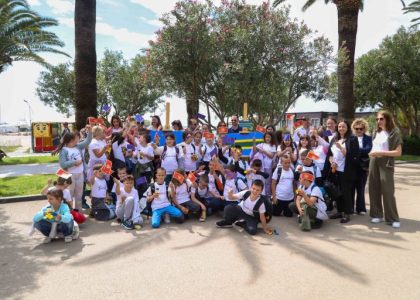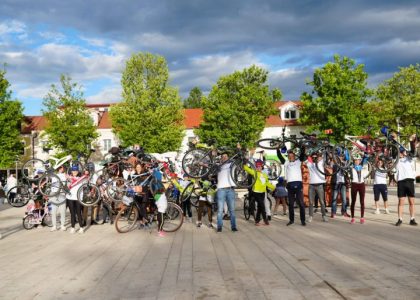“I’d love to see Montenegro, and primarily local communities, thanks to our commitment to nature conservation, realise the economic benefits of protected areas through organic agriculture and ecological tourism. In this sense, they could develop new tourist products and new brands with the Natura 2000 label, which is one of the most treasured brands of the European Union (EU)”, says Andrej Vizi, an ornithologist with the Natural History Museum of Montenegro.
Natura 2000, the EU network of protected areas, is the largest such network in the world, and Montenegro has just started to map its natural resources, which will become part of the European system. Through an EU-funded project, experts are working to establish a system of nature protection, which will be based on very specific data about the value of nature in a given area.
“Without these inputs you cannot determine how the development plans of the country will affect nature. Natura 2000 represents just such a tool. Once implemented, it would prevent us losing entire species of animals or plants due to inadequate spatial planning or some hastily implemented construction project. Every problem becomes easy when it is handled by data, not ideas. This is a benefit that Natura 2000 brings to Montenegro”, said Vizi.
In addition to mapping natural resources, a European system of environmental protection brings specific acquis. Vizi states an interesting example: “If it is determined that certain human economic activity in an area that is privately owned has a negative impact on a plant or animal species, EU member states are obliged to pay out subsidies to the landowners so that they do not to use that part of the land. You have an example in Slovenia where households do not mow their meadows in areas where corncrakes are nesting and they receive annual compensation for the land which is not used. ”
The project “Establishment of the Natura 2000 network” started to be implemented in April 2016 and will last for 3 years. The project’s team leader, Svetoslav Cheshmedjiev, says that the first estimates show that Montenegro has a large number of plant and animal species and habitats of European importance. The project includes relevant state institutions, municipalities, civic and professional organisations and the business sector. A team of international experts is already seeing untapped economic potential, especially in the north of the country, and Cheshmedjiev explains that, with the Natura 2000 system where the need to protect the environment fits the needs of the country for development, benefits can be reaped by foresters, hunters, animal breeders, food manufacturers, beekeepers and of course, tourist workers.
![]()


